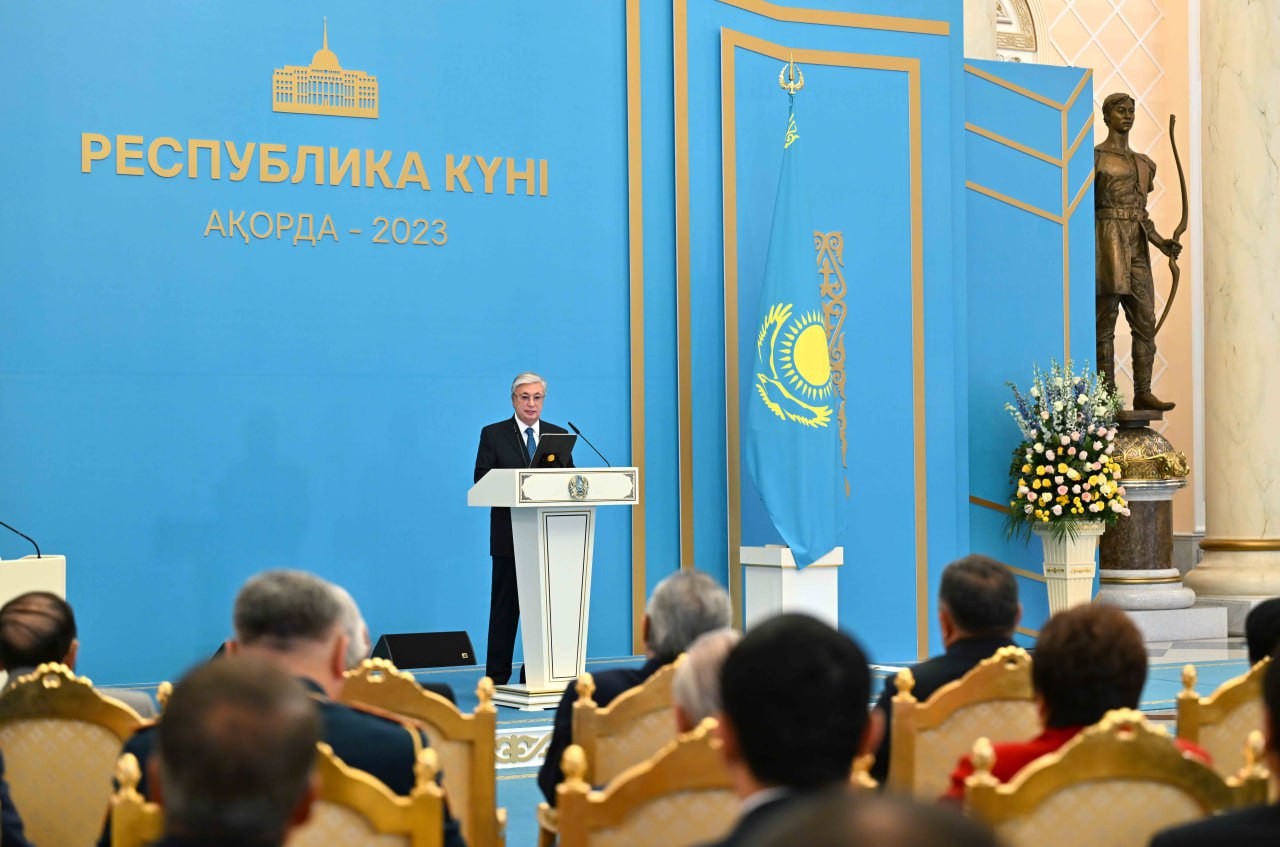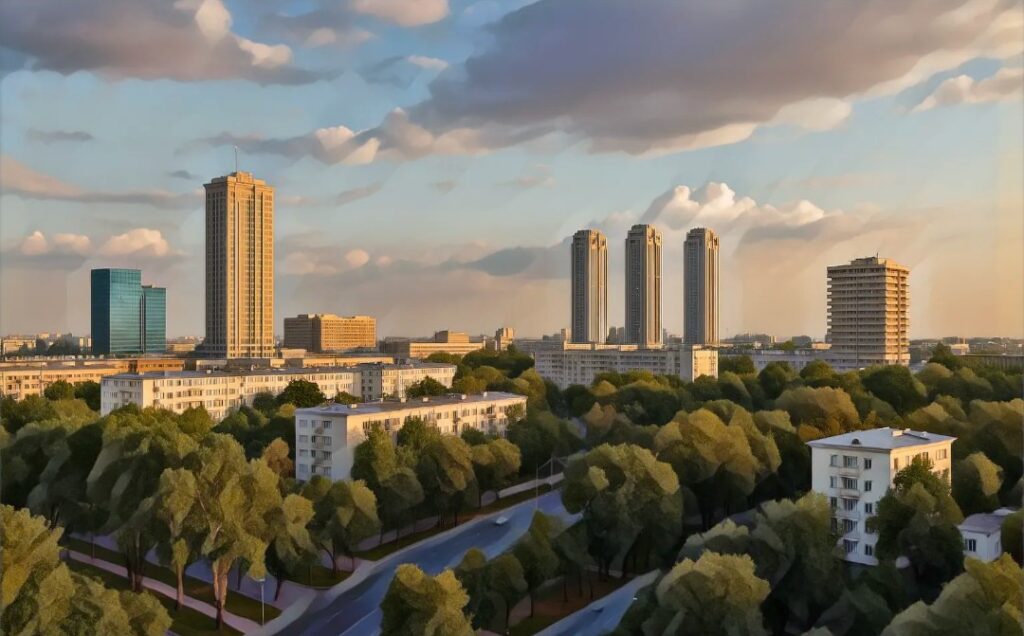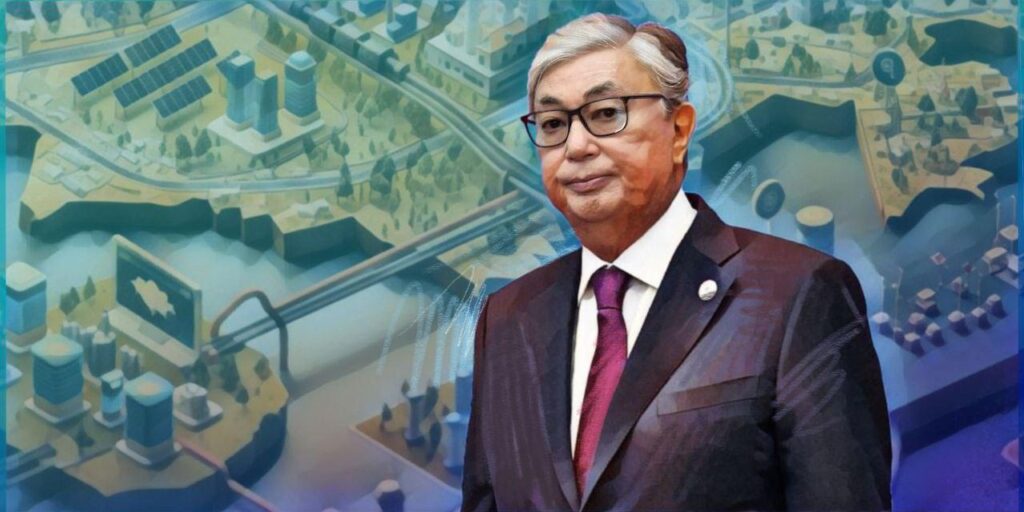In late October, Kazakhstan’s President Kassym-Jomart Tokayev delivered a speech on the eve of the country’s Republic Day holiday. While casting a view back to the declaration of independence in 1990, it was a multi-pronged evaluation of the events in the country’s current context. This approach allowed Tokayev to wear two hats – one as the head of state, which he has worn since 2019, and one as a professionally-trained political scientist and diplomat.
Five main themes stood out in the President’s speech: The independence as the highest national value; the focus on a balanced, peaceful and co-operative foreign policy; the irreversibility of the recent progressive reforms which have strengthened rule of law and shifted the governance culture; the crucial role of the youth in shaping Kazakhstan’s future, and finally, the nation’s commitment to honoring the honest and dedicated work of its citizens.
The President’s evaluation of his first theme, underlining the importance of the country’s independence, included a roll-call of more than a dozen unsung heroes of the early 1990s, who gave birth to the new state. “This declaration of independence,” he affirmed, “met the aspirations and expectations of the people and was adopted thanks to the wisdom and prudence of the country’s patriots,” whose “courage and determination, shown at a critical hour can be regarded as true heroism.”
While Tokayev did not include himself in that list, likely out of modesty, everyone listening to the speech knew that after the dissolution of the Soviet Union, he became the deputy foreign minister of a newly independent Kazakhstan in 1992. He stayed in that post for the better part of a decade before becoming deputy prime minister and then prime minister in 1999. From 2002 to 2007, he represented the country’s foreign ministry and served as state secretary. Thereafter, he variously spent two years as Director-General of the United Nations Geneva Office, and served as chairman of Kazakhstan’s Senate, until 2019 when he became President.
Secondly, President Tokayev underlined that Kazakhstan’s balanced, peaceful and co-operative foreign policy was central to the nation’s strategy to consolidate and preserve its independence by safeguarding peace and harmony beyond its borders. The President’s message underscored the significance of Kazakhstan’s “precious legacy” of independence.
This represents, he pointed out, the latest in a historical series of Kazakh states stretching back to Turkic Khaganates, the Golden Horde and the Kazakh Khanate. However, as Tokayev stressed, the present state of Kazakhstan represents not only a historical achievement but also an ongoing commitment to the future that shapes the country’s diplomatic strategy and its approach to global interactions.
President Tokayev’s Republic Day speech also articulated the imperative of “zero tolerance” towards any manifestations of radicalism, extremism, legal nihilism, and everyday vandalism. These phenomena cannot be allowed because the maintenance of social stability and unity is the foundational domestic requirement for upholding sovereignty and statehood. His strict position on combatting these destructive forces is part and parcel of the government’s commitment ensure that the rule of law is respected and upheld.
Since it is the President’s reforms over the past several years that have significantly strengthened the rule of law in Kazakhstan and transformed the political landscape and the mindset of the populace, it is natural that the third main theme of his Republic Day speech centered on the irreversibility of these reforms.
As a result of Tokayev’s ambitious and progressive reforms, there has been a significant shift in the culture of governance. This shift has, in turn, created a new operational dynamic of the state that has become, in a relatively short time, so firmly rooted that any reversion to the country’s previous methods has become almost unthinkable.
This new forward-thinking approach to national development and governance accents his fourth main point, which is the young people’s crucial role in shaping the country’s future. Tokayev recognized the younger generation, their energy and innovative potential, their creativity and adaptability, as essential drivers of the nation’s continuing advance. “Today’s youth,” he said, “personifies the image of Kazakhstan,” and what Kazakhstan “will become in the future depends on the younger generation.”
This focus on the youth reflects a strategic vision seeking to empower the next generation as custodians of the nation’s legacy, which Tokayev set out in his first point, and as architects of its destiny. Especially for the young generation, he stressed, “It is necessary for Republic Day to become a special holiday that strengthens people’s faith in the future.”
Finally, as his fifth main point, the President underscored the need to honor honest and responsible work and to celebrate it as a cornerstone of the nation’s progress. To promote this, he has in the past presented state awards to hundreds of teachers, doctors, rural workers, labor veterans and industrial workers, emphasising the nation’s work ethic and the need to reward the hard work and dedication of its citizens.
It would not be an exaggeration to say that President Tokayev’s 2023 Republic Day speech is a historical document marking the first 33 years (or a third of a century) of Kazakhstan’s independent existence. His five main areas of emphasis represented a balanced focus on domestic and foreign affairs while acknowledging the state as the people’s autonomous national agent, at the domestic-foreign interface, that safeguards and directs the country’s path through turbulent times.









